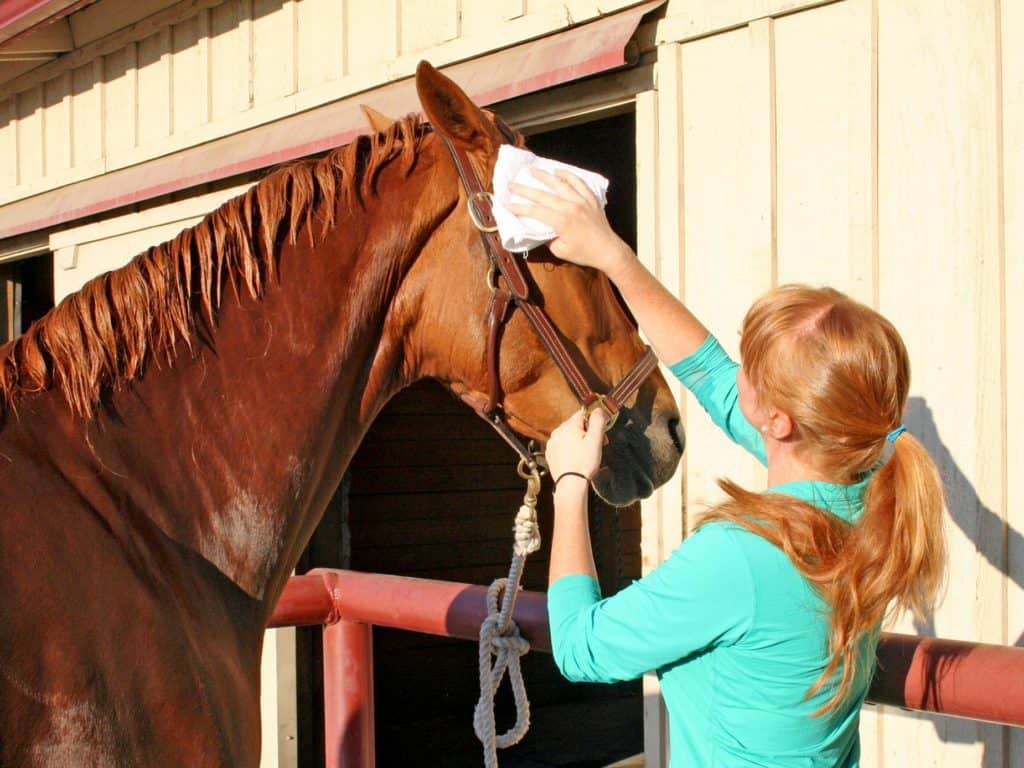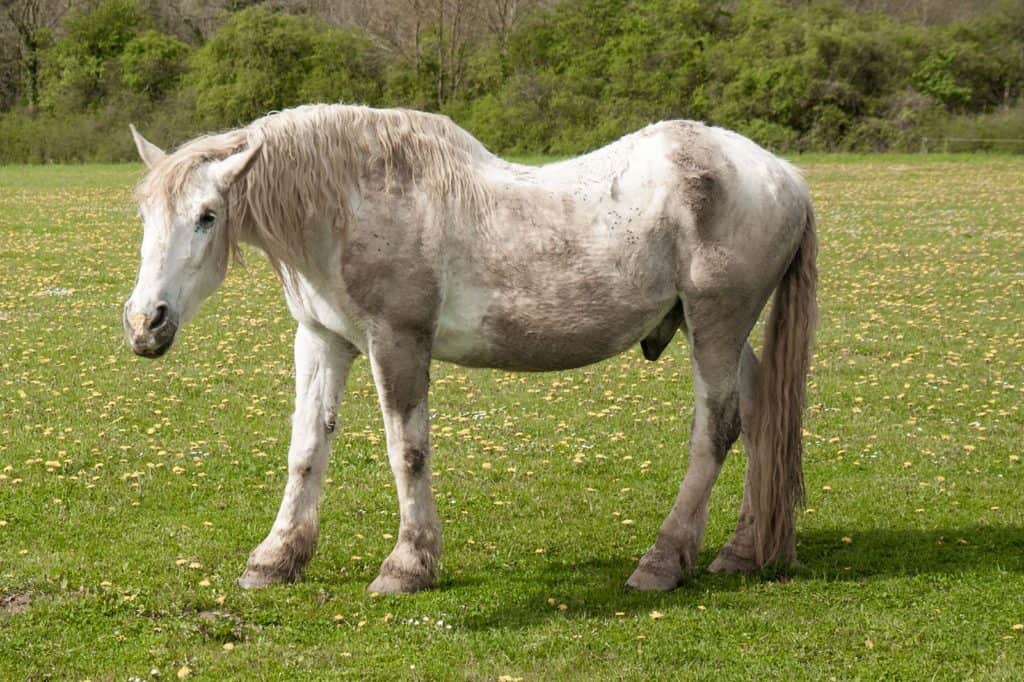

What causes patchy hair loss in horses? How can I treat it?

Sarcoids are believed to be the most common equine skin tumor, affecting about 2% of the worldwide population. Here’s what you need to know about these potentially problematic skin growths.

The University of Saskatchewan’s Western College of Veterinary Medicine will cover the fee associated with the necropsy of aborted fetuses, stillbirths, or euthanized foals suspected of having Warmblood fragile foal syndrome to gather additional information about the genetic disease.

Here are four crucial areas to include in your horse grooming routine.

Find answers to questions about equine infectious anemia, Potomac horse fever, parasites, and more.

Hair loss in horses can be a frustrating management concern simply because the reasons for its occurrence are so many and so varied. Here are some common causes.

A swollen sheath might be a minor issue, but it also could have more serious implications, one veterinarian says.

Find information on stress in horses, antibiotic use, scratches, conditioning, equine allergies, and more.

From hydration to irrigation, learn how to combat challenges that come with caring for horses in arid climates.

Skin problems were the most common general disease reported (33% of all syndromes recorded) and nonhoof-related lower limb lameness was the most common individual issue reported (18.5% of all syndromes recorded).

Swiss researchers have developed and tested a novel IBH vaccine for horses that minimized the disease-associated inflammation and itching in their trial herd.

An immunotherapeutics approach could represent a new generation in therapies for treating chronic immune diseases and could mean new treatment options are on the horizon for horses suffering from IBH.

Horse owners might want to have their mares’ ovaries surgically removed for a variety of reasons, including to prevent pregnancy, get rid of tumors, or, most commonly, resolve behavioral issues.

Squamous cell carcinoma (SCC) can be difficult to treat, so early detection and treatment are key to giving affected horses the best chance at positive outcomes.

Find out how a veterinarian diagnosed a common cancer in horses in a Thoroughbred gelding with a recent history of headshaking and unprovoked panic.

Researchers were surprised that, given the frustration owners reported in trying to manage from insect bite hypersensitivity, veterinarians were not consulted more often or earlier in the course of the problem.
Stay on top of the most recent Horse Health news with
"*" indicates required fields